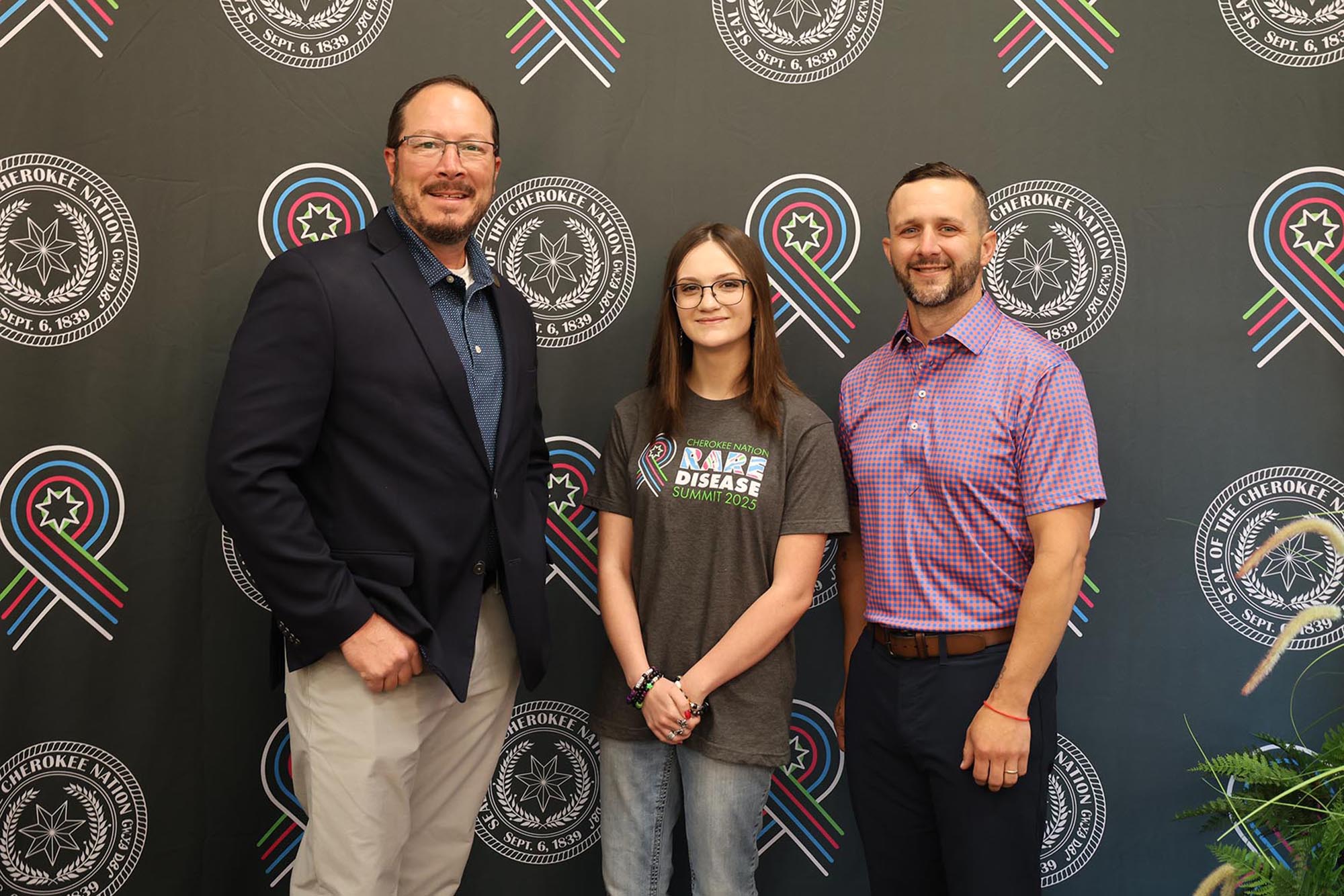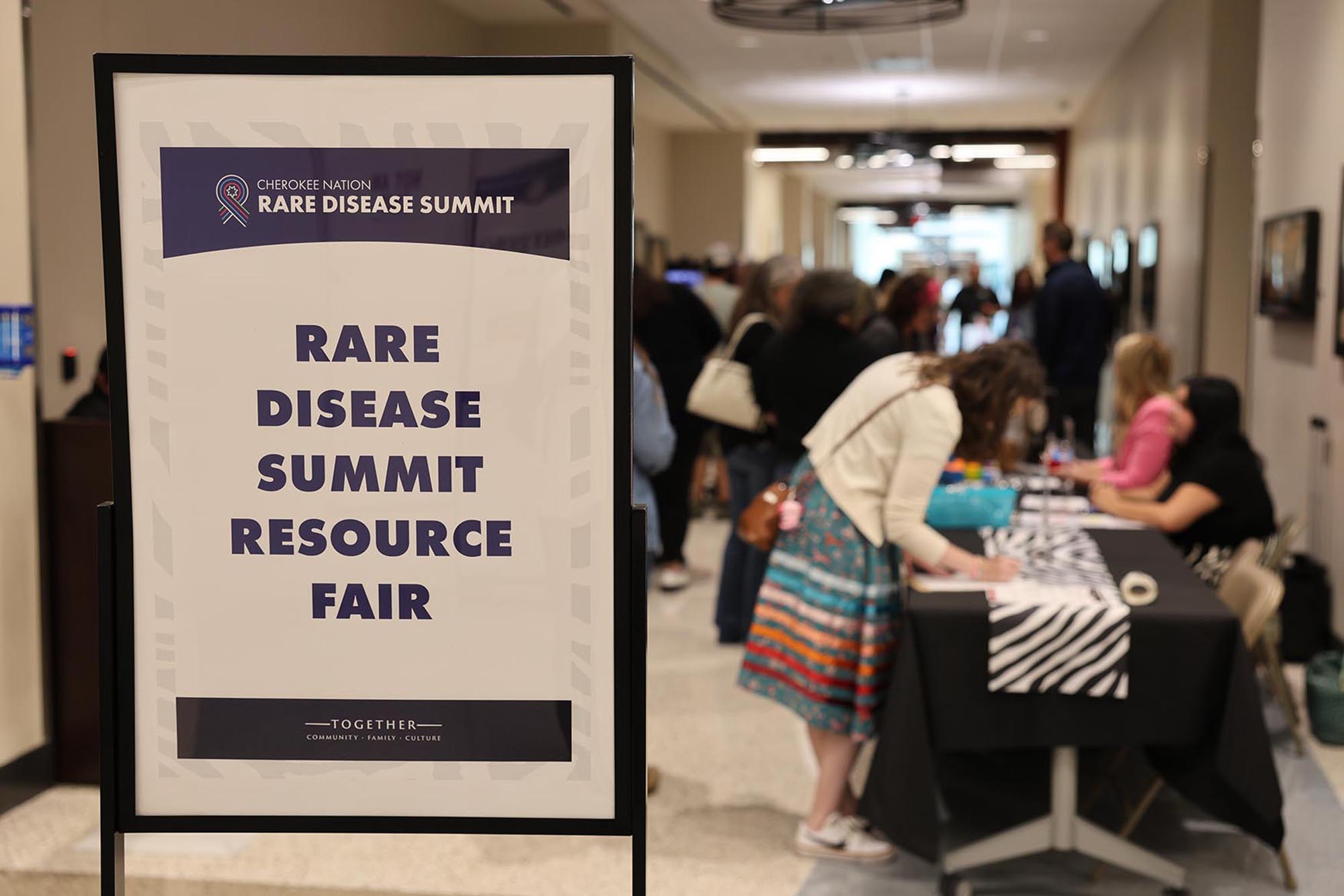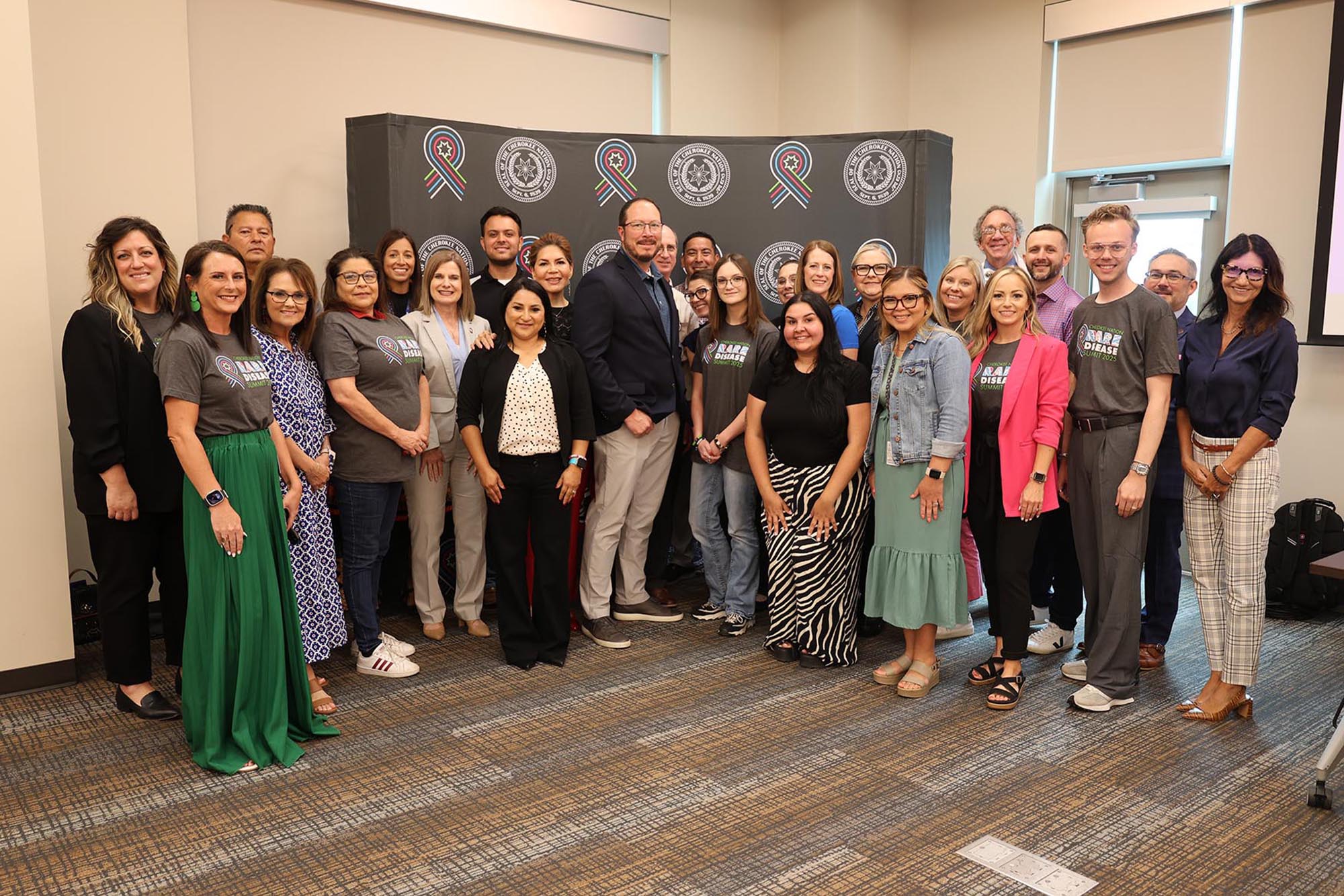TAHLEQUAH, Okla. — The Cherokee Nation held its second annual Rare Disease Summit on Thursday, June 12, at the Cherokee Nation Health Services campus, bringing together health care professionals, medical specialists, and the community to better address the unique challenges facing tribal citizens with rare medical conditions.
According to the National Institute of Health, any disease affecting fewer than 200,000 people in the United States is considered rare, and more than 90 percent lack FDA-approved treatments.
Cherokee Nation’s health care system, the largest tribally operated health system in Indian Country, is committed to finding solutions and increasing resources for people with rare disease conditions by raising awareness, advocating for policy change, and building a growing support network.
This year’s summit featured expert speakers across multiple medical specialties, including neurology, rheumatology, optometry, infectious disease, and pediatrics. Attendees participated in an interactive question-and-answer panel and explored a resource fair designed to provide comprehensive information and support.
“Cherokee Nation has always been committed to meeting the health care needs of our citizens, no matter how complex or challenging those needs may be,” said Principal Chief Chuck Hoskin Jr. “Our second annual Rare Disease Summit demonstrates our unwavering dedication to ensuring that no Cherokee citizen faces a rare disease diagnosis alone. By bringing together leading medical experts, patients, families, and advocates, we’re building a stronger support network and advancing care options that can make a real difference in people’s lives. This summit represents the Cherokee values of working together and leaving no one behind.”

First Daughter Jasmine Hoskin attended representing Chief Hoskin and First Lady Hoskin.
Summit attendees also had the opportunity to take part in various breakout sessions throughout the day that covered the following topics: the Newborn and Rare Disease Screening Program; building partnerships to optimize Cystic Fibrosis care in children and adults; genetic testing for epilepsies; mental health in the perinatal period; rare genetic variants and their role in diabetes and vascular diseases; Pediatric Neurovascular Disease; Ehlers Danlos Syndrome; and Spina Bifida and Chiari.
“As we gather for our second annual Rare Disease Summit, I’m reminded of the strength and resilience of Cherokee families who face these challenging diagnoses every day which is why I wanted to bring this summit and experts to the Cherokee Nation. This summit is about more than medical information – it’s about hope, community, and the knowledge that Cherokee Nation stands with every family on their health care journey,” said First Lady January Hoskin. “When we come together to share resources, support one another, and learn from medical experts, we embody the Cherokee principle of taking care of others. I’m proud to see our Nation leading this important work.”

With rare diseases affecting an estimated 1 in 10 Americans with over 7,000 known conditions, the Cherokee Nation’s initiative represents a significant step toward raising awareness and addressing these complex medical challenges.
“The medical challenges presented by 7,000-plus known rare diseases are significant. However, Cherokee Nation Health Services is uniquely positioned to address these complex conditions through our comprehensive, culturally centered approach to care,” said Health Services Chief Medical Officer Dr. Beth Harp. “This summit allows us to connect our patients and families with cutting-edge research, specialized care options, and a network of support that extends far beyond traditional medical treatment. We’re not just treating rare diseases – we’re pioneering innovative approaches that could benefit patients throughout our reservation and beyond.”

